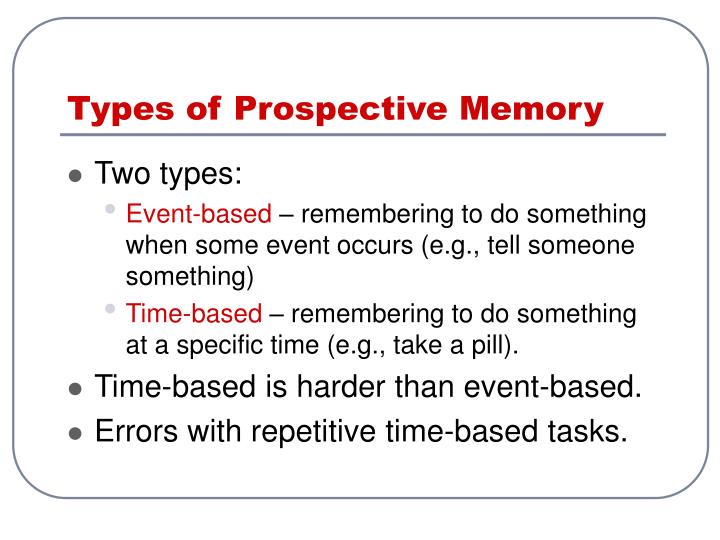

In order to answer correctly when the special syllable flashed up on the screen, the participants had to sustain their attention and monitor for the special syllable throughout the entire task. When the special target was not relevant to the ongoing activity - such as a syllable like "tor" - participants seemed to rely on top-down brain processes supported by the prefrontal cortex. When McDaniel and colleagues analyzed the fMRI data, they observed that two distinct brain activation patterns emerged when participants made the correct button press for a special target. The task was designed to tap into participants' prospective memory, or their ability to remember to take certain actions in response to specific future events. In addition to this ongoing activity, participants were asked to try to remember to press a third button whenever a special target popped up. Louis and colleagues had participants lie in an fMRI scanner and asked them to press one of two buttons to indicate whether a word that popped up on a screen was a member of a designated category.


To investigate how prospective memory is processed in the brain, psychological scientist Mark McDaniel of Washington University in St. New research sheds light on two distinct brain processes that underlie this type of memory, known as prospective memory. Remembering to remember - whether it's grocery bags, appointments, or taking medications - is essential to our everyday lives. Lo and behold, you reach the check-out counter and you realize you've forgotten the bags. You plan on shopping for groceries later and you tell yourself that you have to remember to take the grocery bags with you when you leave the house. Remembering to remember supported by two distinct brain processes PhysOrg - August 19, 2013 External cues, as opposed to internal cues, act as a prompt for better performance, making it easier to complete event-based tasks.

The difference in task performance between the two types of prospective memory suggests that the intended action was better triggered by external cues of the event-based task than internal cues of the time-based task. It was found that performance on event-based tasks was better than performance on time-based tasks, even when participants took more time to think about their responses. The experimenters gave participants a place (event-based cue) and a time (time-based cue) and were told to press a button each time those cues appeared during the study. (1997) compared event-based and time-based cues on prospective memory tasks. For example, seeing that it is 10:00 PM acts as a cue for you to know that is it time to watch your favorite television show. Time-based prospective memory involves remembering to do an action at a particular point in time. For example, driving past the local library cues you to remember that you need to return an overdue book. Event-based prospective memory involves remembering to do a certain action when the specific circumstances are present. There are two types of prospective memory: event-based and time-based prospective memory. There is some evidence demonstrating the role of retrospective memory in the proper performance of prospective memory, but this role seems to be relatively small. Retrospective memory involves the memory of what we know, containing informational content prospective memory focuses on when to act, without focusing on informational content. Prospective memory and retrospective memory differ in the fact that retrospective memory emphasizes memory for events that have previously occurred, while prospective memory focuses on intended future events and is thus considered a form of memory for the future. In contrast to prospective memory, retrospective memory involves memory of people, events and words that have been encountered in the past. Examples of highly important situations include a patient remembering to take medication or a pilot remembering to perform specific safety procedures during a flight. Examples of simple tasks include remembering to put the toothpaste cap back on, remembering to reply to an email or remembering to return a rented movie. Prospective memory tasks are highly prevalent in daily life and range from relatively simple tasks to extreme life-or-death situations. Prospective memory is a form of memory that involves remembering to perform a planned action or intention at the appropriate time.


 0 kommentar(er)
0 kommentar(er)
